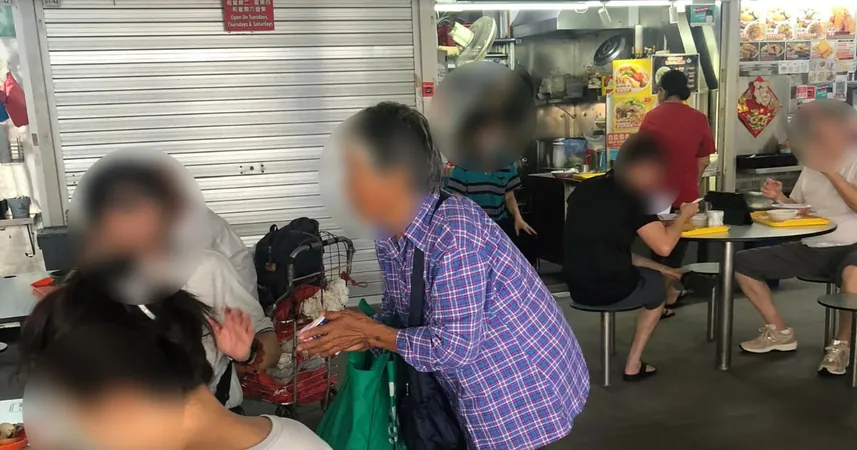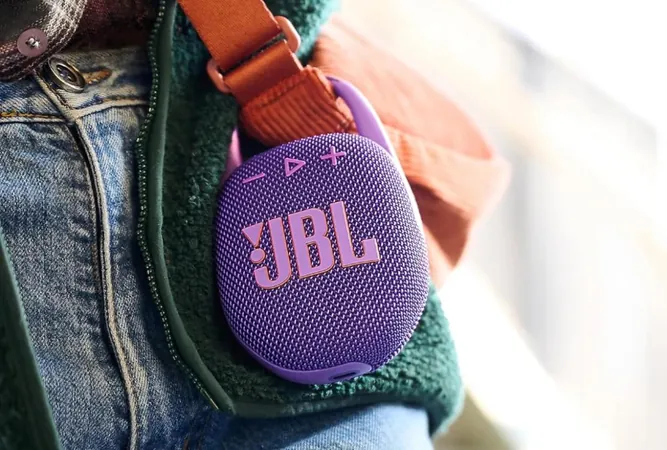
Are Foreign Tissues Sellers Stealing Business from Locals in Bedok? A Struggle for Survival
2024-11-05
Author: Jia
Introduction
Selling tissues in Singapore's bustling hawker centres is more than just a simple means of earning a living; for some, it represents their sole source of income. Recent claims from local tissue vendors at the Bedok Food Centre suggest that foreign sellers, particularly from China, are not only competing with them but also allegedly stealing their customers.
Local Vendor's Testimony
A heartbreaking testimony comes from a local seller known only as Chen, who has been wheelchair-bound since suffering a stroke years ago. She expressed her frustration, stating, “They come every day to steal my business, which has really impacted people like me who make a living through selling tissues." Chen believes these foreign vendors are operating without licenses and are also seen peddling their products in nearby coffee shops and markets.
Appeal for Action
With this situation escalating, Chen is appealing to authorities to enhance enforcement against unlicensed vendors, as their presence poses a significant threat to the livelihoods of legal tissue sellers.
Public Reaction
The issue has sparked debates on social media platforms like Facebook. User Lee Cheokcheng raised concerns about the legality of such sales, sharing a photograph of an elderly woman, hunched and pleading with diners near Block 216 Bedok Food Centre, attempting to sell her tissues. This vivid image reflects a larger narrative of struggle and survival among less privileged individuals.
Emotional Appeals
Reports indicate that other vendors exhibit similar tactics, often resorting to emotionally charged appeals to secure sales, saying things like “please help me” in a trembling voice. While some diners feel sympathy and occasionally purchase tissues or give money, many choose to look away, creating a complex dynamic of compassion versus discomfort.
Regulatory Context
As of the end of 2023, Singapore has 28 licensed tissue sellers, according to Minister for Sustainability and Environment, Grace Fu. Interestingly, she noted that the government does not keep track of unlicensed sellers, which raises questions about regulatory measures and accountability.
Legal Framework
Under the Street Hawking Scheme, operating without a license—which costs only $10 per month—is illegal. These regulations stipulate that licensed vendors must only operate in designated areas, a measure intended to minimize disruption to local residents.
Conclusion
The plight of local tissue sellers like Chen encapsulates a larger issue of economic competition, ethical street vending, and the need for policy changes to protect vulnerable workers. With the economic challenges facing many Singaporeans, the local community is calling for action to support legal vendors and ensure that they can continue their trade without fear of being overshadowed by unlicensed foreign competitors.
Questions for Consideration
Is enough being done to support these local vendors? What policies could be put in place to help balance the market? The answers to these questions could redefine the landscape for many struggling local sellers.


 Brasil (PT)
Brasil (PT)
 Canada (EN)
Canada (EN)
 Chile (ES)
Chile (ES)
 España (ES)
España (ES)
 France (FR)
France (FR)
 Hong Kong (EN)
Hong Kong (EN)
 Italia (IT)
Italia (IT)
 日本 (JA)
日本 (JA)
 Magyarország (HU)
Magyarország (HU)
 Norge (NO)
Norge (NO)
 Polska (PL)
Polska (PL)
 Schweiz (DE)
Schweiz (DE)
 Singapore (EN)
Singapore (EN)
 Sverige (SV)
Sverige (SV)
 Suomi (FI)
Suomi (FI)
 Türkiye (TR)
Türkiye (TR)